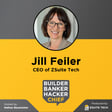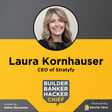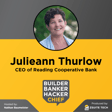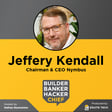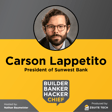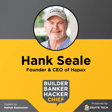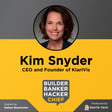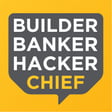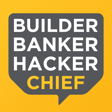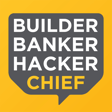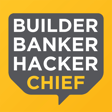
Kris Bishop — The folly of prejudgment, enjoying the chaos, and the unsung power of intuitive decision-making | Episode 21
Welcome to episode twenty-one of Builder, Banker, Hacker, Chief! Joining me today is Kris Bishop, CEO of FIntegrate.
On this show, I’m unpacking the stories, decisions, and influences that make people successful leaders.
Kris grew up on a farm in Mississippi, working from “can to can’t” as his father would say. Although he fully absorbed the relentless work ethic of his family, Kris knew his destiny wasn’t going to be at the wheel of a tractor or on an assembly line. His affinity for technology is what eventually got him into the world of banking.
My name is Nathan Baumeister; I am the Co-founder and CEO of ZSuite Tech and the host of this podcast.
As you’ll see, like some of our other guests, Kris has been involved in pivotal moments in banking technology, ushering banks and credit unions through digital transformations from the days of DOS to the era of the cloud. And however technical and difficult the work gets, it just elevates the enjoyment Kris feels in tackling the challenge.
But over and over again Kris discovered that some of his biggest learning curves didn’t happen with migrating data centers but with navigating the intricacies of people leadership.
FIntegrate is a company build around serving institutions that are undergoing huge transitions, such as mergers, acquisitions, or simply digitizing their back office. It’s a niche that Kris and his team have worked hard to perfect.
Whatever high-tech domain that Kris is working in, he never loses the qualities that have helped him along the way, like thinking the best of people and being willing to admit mistakes and ask for forgiveness.
Resources:
Kris’ book recommendations:
The Noticer by Andy Andrews
The Ideal Team Player by Patrick Lencioni
Connect:
